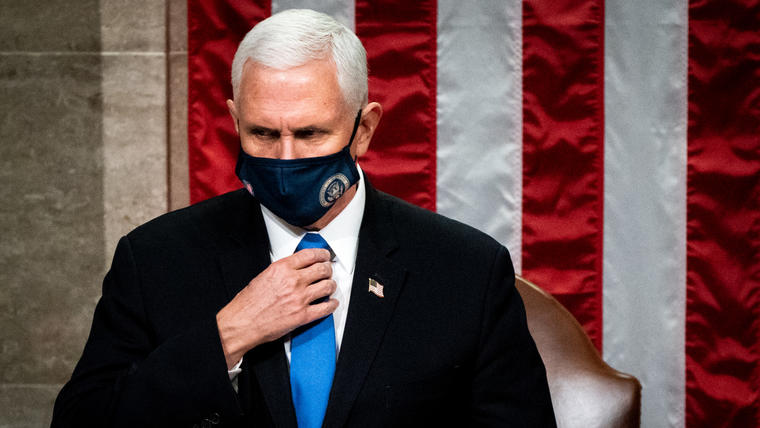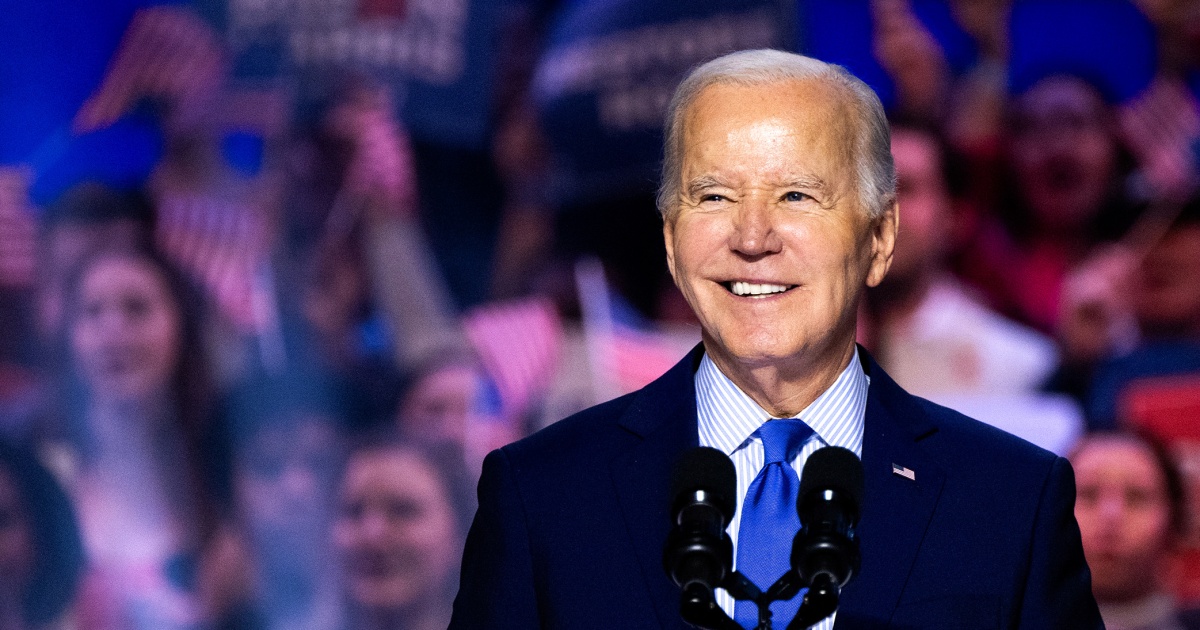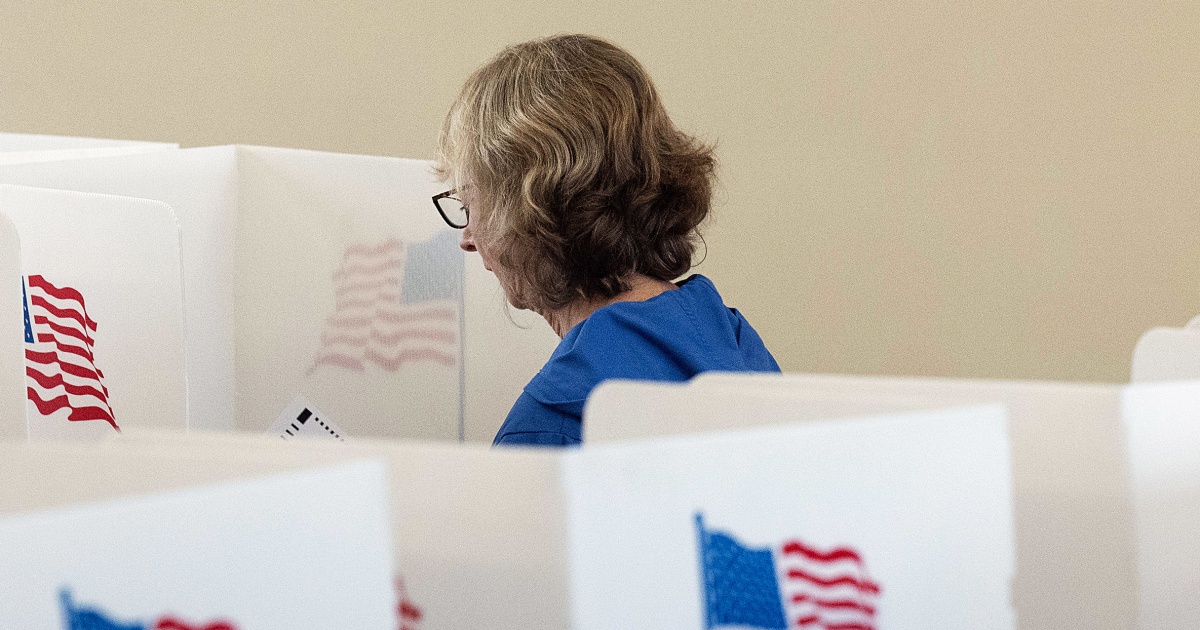By David Ingram - NBC News
Outgoing President Donald Trump's online empire has collapsed.
Twitter permanently suspended his account on Friday.
Facebook blocked it indefinitely the day before.
And any hopes she might have had of quickly gaining a large following on Parler, a social network with lax rules, was dashed when Google, and later Apple, removed her from their app stores.
Even Trump's email provider suspended access to his campaign organization.
The internet, as most people know it, has decided that Trump is no longer welcome
.
It's a turning point for digital discourse, which took years to develop, but took only a few hours to happen.
The crackdown does not end the conversation about internet rules, but rather amplifies a relatively new one that will unfold in
Silicon Valley's executive
suites
, in advertiser decisions, and in congressional hearings on Section 230, the law. which protects internet companies from having great responsibility for their content.
And it points to growing questions about the centralization of internet power in a handful of companies.
[This is how 2020 has changed our relationship with the internet and technology]
"It's almost as if a bunch of guys in Silicon Valley who won the start-up lottery shouldn't be in charge of setting the rules that the world follows in order to speak up," tweeted Kate Klonick, a law professor at St. John, who has criticized the lack of responsibility of technology companies.
The American Civil Liberties Union (ACLU) raised concerns about the implications of censoring a president on an "indispensable" platform
, but even some of the internet's most vehement free speech advocates found difficulties in rejecting Trump's censorship.
[The Government demands that Facebook sell Instagram and WhatsaApp in a monopoly lawsuit]
"A platform should not apply one set of rules to the majority of its users and then apply more permissive ones to politicians and world leaders who are already immensely powerful," the Electronic Frontier Foundation, which supports privacy and freedom of speech, said Thursday. expression online, in a statement.
Government policy makers, the group added, should "find ways to encourage competition so that users have numerous editorial and policy options to choose from," they add.
Pence moves away the possibility of applying the 25th amendment to seek the exit of Donald Trump
Jan. 10, 202100: 38
Tech companies may have come to peace in their role as speech moderators, taking seriously the application of the rules they have written for their own platforms and banishing the idea of unmoderated forums.
But the road to this point has been difficult.
It wasn't that long ago when it was incredibly difficult to get off the internet.
Much more common was being chased away by other users.
In 2014, breaking the rules against bullying seemed to have no consequences, as when female video game players were attacked in a campaign known as Gamergate.
[Google faces accusations of racism after the firing of two black employees]
Social media had many rules, set in terms of service written by the company's attorneys, and quickly overlooked or ignored by most users.
But enforcement was uneven and there was little outside scrutiny of content moderation decisions.
Tech companies had little experience with politicians who delighted in testing their rules.
Racists could openly organize online, and the idea that disinformation campaigns on social media could influence an election seemed far-fetched.
It was on that border that Trump began to become a political force, and for years social media companies accommodated not only his breaking the rules, but also his threats against the industry.
And in the years that followed, Trump's rise coincided with the platforms taking on more responsibility.
Tech companies wielded their power in 2017 after a white nationalist rally in Charlottesville, Virginia.
Neo-Nazi website The Daily Stormer lost access to basic internet providers and went offline, but these actions were targeted at a select few.
[A hacker managed to guess Trump's Twitter password: "maga2020!" According to prosecutors]
The idea of kicking Trump off social media divided the tech industry.
After Twitter CEO Jack Dorsey refused to suspend it three years ago, even though Trump used the service to threaten a nuclear war against North Korea, activists projected the phrase "@jack is #complice" on the company headquarters in San Francisco, California.
The First Amendment [which protects freedom of speech and freedom of the press] applies only to the Government, not to private corporations.
But executives like Dorsey and Facebook boss Mark Zuckerberg said they were wary of monitoring the speech of a US president-elect.
"I think people should be able to see this for themselves, because ultimately, the responsibility of those in positions of power can only happen when their speech is openly analyzed," Zuckerberg declared seven months ago, defending Trump's ability to Post your opinions.
In 2019, Trump invited Zuckerberg to dinner at the White House, where the executive informed the president that he was "number 1 on Facebook," according to Trump.
Pence moves away the possibility of applying the 25th amendment to seek the exit of Donald Trump
Jan. 10, 202100: 38
Managers held their ground even in the face of riots by their own employees, many of whom lean toward Democrats, and even as Trump posed a threat to their businesses through his immigration policies, antitrust enforcement and his campaign to repeal Section 230.
[Facebook knows what you do on the internet. Now you can control it thanks to this button]
But there were other problems as well, including for business reasons.
Advertisers, who generally do not want to be associated with hate speech, have pushed social media platforms to enforce law enforcement by withholding their costs.
Trump's huge Twitter presence, where he had nearly 89 million followers, meant he was closely identified with the service
, for better or for worse.
The company became much more profitable during the course of the Republican president's presidency.
The turnaround in Trump's fortunes on the internet began two months ago, after he lost reelection.
A clock began to tick to know when he would lose the protection of a special rule that Twitter has for world leaders, a rule that the company created in 2018 after complaints related to the Republican president.
The change accelerated dramatically on Wednesday, when Trump supporters entered the Capitol, disrupted congressional proceedings and briefly occupied the building.
A police officer and four people died during the riots.
[Journalist Jeffrey Toobin is fired from The New Yorker magazine after showing his private parts in a Zoom video call]
In recent days, Trump lost the support of influential people in the tech industry
who previously defended his presence on the platforms on grounds of free speech.
Among them were former Twitter executive Adam Sharp, former Facebook security chief Alex Stamos, and Ben Thompson and Casey Newton, who write newsletters that are widely read in Silicon Valley.
A key consideration was that Trump could use social media during his last two weeks in office to continue provoking violence.
"In 10 days, barring a catastrophe, he will be out of office," Newton wrote in a demand to "evict" the president.
"
The only question is how much damage it will do in the meantime, and we know, based on our long experience, that its Twitter and Facebook accounts will be among its main weapons
,
" he
recalled.
Dealing with Trump after Wednesday's Capitol takeover would have required even more elaborate rule changes for platforms that had already made backward moves to retain him.
Thompson, a tech industry analyst, wrote Thursday before the Twitter and Facebook decisions that
"both companies continue to bend their rules, or make new ones after the fact, to justify what are subjective decisions about Trump's tweets
.
"
[This heinous crime was "the perfect example of an unsolved mystery." But Google delivered the culprit]
The evolving app has created the impression that tech executives are creating the rules on the fly, a semblance of arbitrary decision-making that Republicans in particular are eager to tap into to a potential advantage.
Sen. Lindsey Graham, Republican of South Carolina, promised consequences for tech decisions to ostracize Trump, saying in a Twitter thread Friday that there will be "legal liability."
That, in turn, can test whether everyday users view the platforms as non-partisan.











